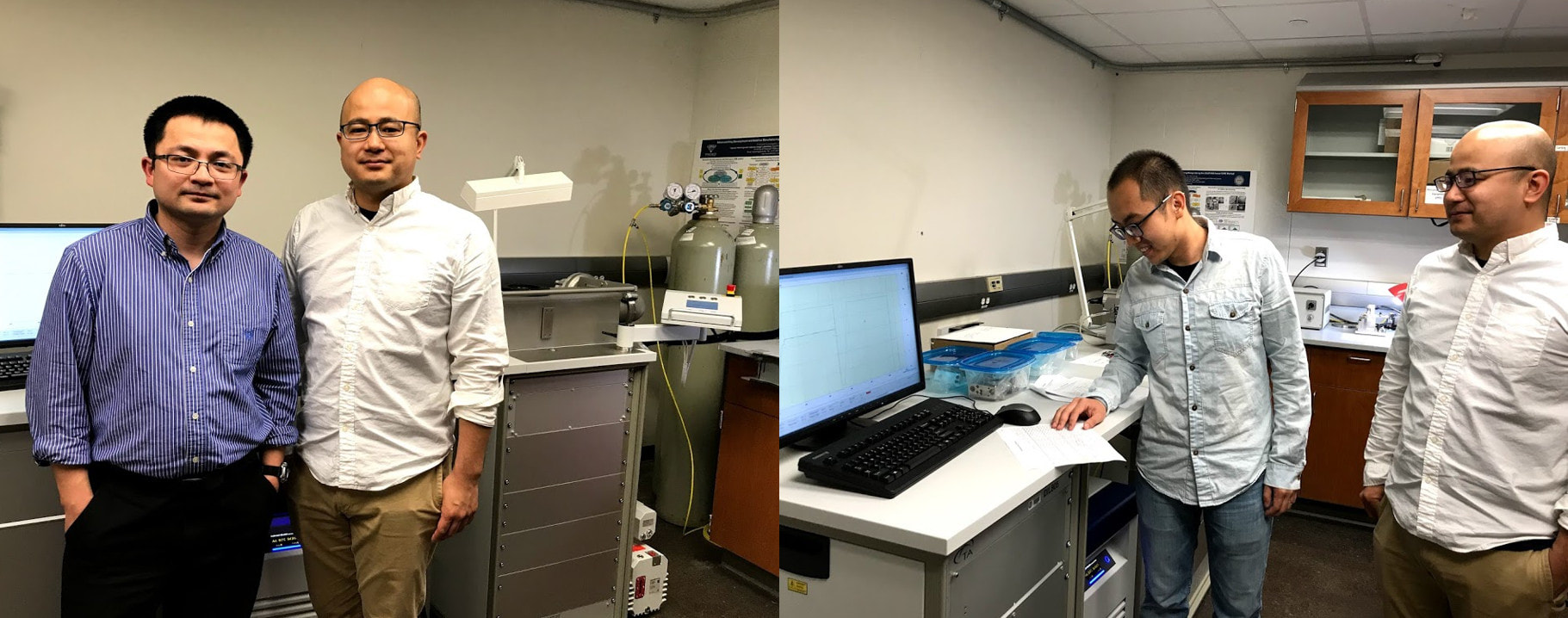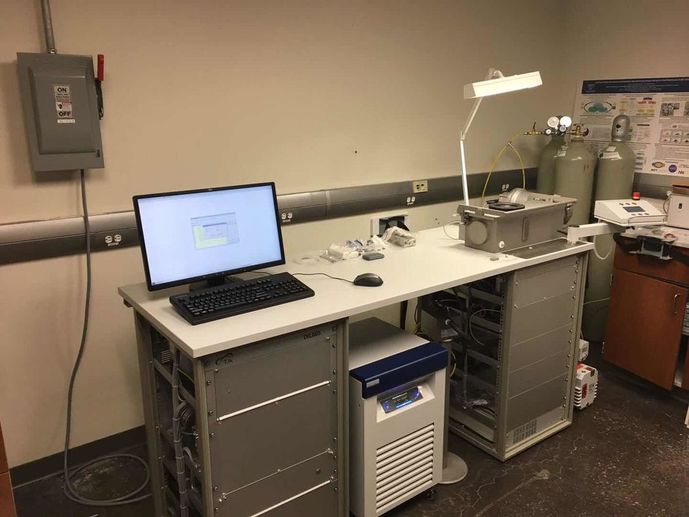|
The PMMD Lab now has equipped the DSC404 F1 for thermal analysis. This is purchased from Netzsch instruments company. The equipment can be used to determine heat capacity, phase transformation temperature, heat of reaction for different kinds of materials from room temperature to 1650 ºC. Mr. Xin Wang and Miss. Liangyan Hao are now in charge of the training and calibration, and they will become experts in thermal analysis. The instrument is important to our research in thermodynamic modeling and alloy design.
1 Comment
Co-authored with collaborators in other four institutions, one paper about high entropy alloy with contribution from Dr. Wei Xiong has been published in Science Advances, which is a sister journal of Science Magazine. Congratulations!
https://doi.org/10.1126/sciadv.aat8712 "A high-entropy alloy with hierarchical nanoprecipitates and ultrahigh strength", Zhiqiang Fu, Lin Jiang, Jenna L. Wardini, Benjamin E. MacDonald, Haiming Wen, Wei Xiong, Dalong Zhang, Yizhang Zhou, Timothy J. Rupert, Weiping Chen, Enrique J. Lavernia, Science Advances, 4 [10] (2018) eaat8712 Abstract High-entropy alloys (HEAs) are a class of metallic materials that have revolutionized alloy design. They are known for their high compressive strengths, often greater than 1 GPa; however, the tensile strengths of most reported HEAs are limited. Here, we report a strategy for the design and fabrication of HEAs that can achieve ultrahigh tensile strengths. The proposed strategy involves the introduction of a high density of hierarchical intragranular nanoprecipitates. To establish the validity of this strategy, we designed and fabricated a bulk Fe25Co25Ni25Al10Ti15 HEA to consist of a principal face-centered cubic (fcc) phase containing hierarchical intragranular nanoprecipitates. Our results show that precipitation strengthening, as one of the main strengthening mechanisms, contributes to a tensile yield strength (σ0.2) of ~1.86 GPa and an ultimate tensile strength of ~2.52 GPa at room temperature, which heretofore represents the highest strength reported for an HEA with an appreciable failure strain of ~5.2%. We feel excited and welcome Ms. Liangyan Hao to join the PMMD lab. Ms. Liangyan Hao is a top graduate student with her Master thesis finished at the Huazhong University of Science and Technology, which is the top university in China. Her background is metals casting and manufacturing. Liangyan loves mathematics, and would like to learn more things on phase transformations during her PhD study. We wish her a fruitful PhD studying at the PMMD Lab.
Department of Energy awards $750,000 to Pitt collaborating with UTRC for development of alloy components in fossil fuel power plants |
PMMD at Pitt
Physical Metallurgy & Materials Design Laboratory Archives
November 2018
Categories
All
|
Wei Xiong Research Homepage





 RSS Feed
RSS Feed

